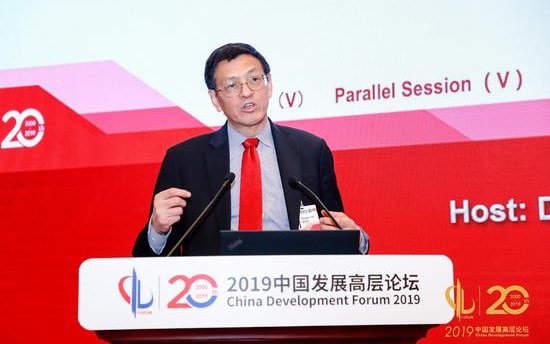Global leaders and stakeholders gathered in Beijing March 23-25 for this year’s China Development Forum, with the theme “Greater Opening-up for Win-Win Cooperation”—a critical topic in light of prevalent anti-trade sentiments in some countries. I was honored to speak at the session on Opening-up of the Agricultural Sector and Food Security, where I focused on how to achieve food security under an open trade system.
China plays a major role in global trade. China’s share of global food production and consumption is growing, especially for fruits, vegetables, and meat, and the country’s import dependence in agriculture continues to rise, driven partially by increased demand for animal feed. China can benefit by trading according to its comparative advantage in agriculture—it can export labor-intensive goods, such as fruits, vegetables, and aquatic products, while importing land- and water-intensive goods. China also plays a major role in global food security; for example, as Africa’s largest trade partner, China increasingly provides food to the continent.
How can China play an even greater role in global food security and international trade? First, instead of enacting market-distorting policies or engaging in bilateral agreements, China should invest in trade competitiveness. To do so, China should increase investments in agricultural R&D, in climate-smart and multiple-win practices and technologies, and in upgrading water infrastructure and connectivity in remote areas. The country should also reform its agricultural subsidy regime by diverting such subsidies to invest in some of the aforementioned options to promote long-term competitiveness.
To be a leader in global food security and trade, China should continue to promote South-South trade and foreign direct investment (FDI). By supporting countries in Africa, South Asia, and Latin America and Caribbean, China can help diversify global suppliers, thus reducing risk especially in the face of climate change. China should continue to be a lead investor in Africa and among other developing countries, and should pursue more agriculture-related investments there. Finally, China should continue technology transfer and education through the China-Africa development fund and Agricultural Technology Demonstration Centers (ATDCs).
To achieve global food security and fair and open international trade, global cooperation will be critical. China should work with international organizations such as the World Trade Organization (WTO) to ensure that supply chains are without distortions or disruptions. Indeed, it will be important to foster open and fair competition among major players in international trade. As such, China should continue to engage in global governance in food and agriculture—and in doing so foster more win-win opportunities through cooperation.
Shenggen Fan is Director General of IFPRI.
The China Development Forum, organized by the China Development Research Center of the State Council, is the preeminent platform for dialogue between China’s senior leadership and representatives of leading global businesses, international organizations, and scholars. The theme of this year’s forum was “Greater Opening-up for Win-Win Cooperation.”







